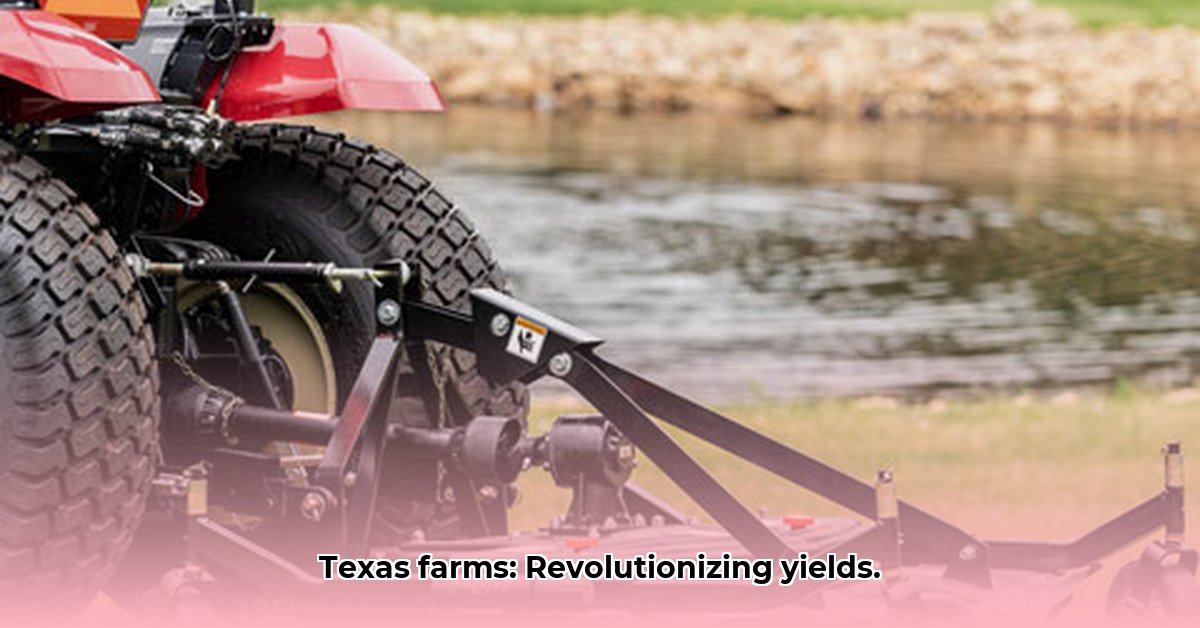
The Myth of Sustainability Through Equipment Alone
The assumption that purchasing advanced agricultural equipment, such as Paige Tractors, automatically contributes to sustainable farming practices is a misconception. While fuel-efficient tractors can play a role, sustainable agriculture requires a holistic approach encompassing numerous factors beyond machinery. This article critically assesses Paige Tractors' contribution to sustainable farming in Texas, examining both the potential benefits and limitations of their equipment, and highlighting crucial sustainable farming practices independent of specific brands. Does the reality of Paige Tractors' impact align with the ideal of sustainable agriculture? Let's investigate.
Examining Paige Tractors' Role in Sustainable Agriculture
Paige Tractors' marketing may emphasize fuel efficiency in their models. However, a comprehensive assessment requires more than marketing claims; independent verification is crucial. What are the tractors' real-world fuel consumption rates? How long do they remain operational before needing significant repairs or replacement? What is the ease of repair, and the availability of parts? Finally, what is the environmental impact of the tractor's end-of-life management—recycling, parts reclamation, or landfill disposal? These questions are essential to understanding the total environmental footprint. Simply stating fuel efficiency is insufficient; concrete data is necessary for a thorough analysis. How can we determine the genuine impact of Paige Tractors on fuel consumption, considering the manufacturing process and final disposal?
Key Factors Affecting Environmental Impact:
| Factor | Positive Impact (Potential) | Negative Impact (Potential) | Data Needed for Assessment |
|---|---|---|---|
| Fuel Efficiency | Reduced greenhouse gas emissions | Still utilizes fossil fuels | Independent, verifiable fuel consumption data |
| Tractor Lifespan | Reduced need for frequent replacements | High initial cost, potential for obsolescence | Long-term durability studies and verifiable data on lifespan |
| Repairability | Reduced waste from replacements | Reliance on specialized parts & mechanics | Serviceability data and independent assessment of parts availability |
| End-of-life Management | Recycling of parts | Potential for landfill disposal | Detailed description of recycling/disposal procedures and their environmental impact |
Beyond the Tractor: Essential Sustainable Farming Practices
Sustainable agriculture hinges on a multifaceted approach extending far beyond the type of tractor used. Even the most fuel-efficient tractor will have a limited positive impact if paired with unsustainable farming practices. These practices are key to creating a truly sustainable farming enterprise:
Precision Agriculture: Utilizing GPS and technology for precise application of water, fertilizer, and pesticides, leading to efficient resource utilization and yield maximization. This strategy can significantly reduce waste and environmental impact.
Cover Cropping: Planting non-harvested crops to enhance soil health, prevent erosion, and organically enrich the soil. These crops act as a natural fertilizer, reducing reliance on chemical fertilizers.
No-Till Farming: Minimizing soil disturbance to improve soil structure, reduce erosion, and enhance carbon sequestration. This approach reduces fuel consumption associated with tillage.
Integrated Pest Management (IPM): Integrating various methods – biological controls, cultural practices, and pesticides (used judiciously)- to control pests while minimizing the reliance on harmful chemicals. This balanced approach protects the environment whilst maintaining crop health.
These methods, applied diligently, can significantly reduce a farm's environmental impact regardless of the equipment utilized. They represent a crucial component of sustainable agriculture often overlooked in discussions solely focused on the machinery itself. How can farmers effectively balance the use of advanced equipment with these critical environmentally friendly farming practices?
Conclusion: A Holistic Approach to Sustainable Farming
While Paige Tractors might offer advanced equipment, their contribution to sustainable agriculture remains inconclusive without substantial independent data on their environmental impacts. The focus should shift from the equipment itself towards a comprehensive, holistic approach to farming that integrates innovative technologies with responsible and environmentally sound practices. The future of sustainable farming hinges upon this integrated and balanced strategy. What steps can farmers, policymakers, and equipment manufacturers take to encourage the adoption of these holistic sustainable agricultural techniques? The responsibility lies with all involved to achieve environmental sustainability and secure the future of Texas agriculture.